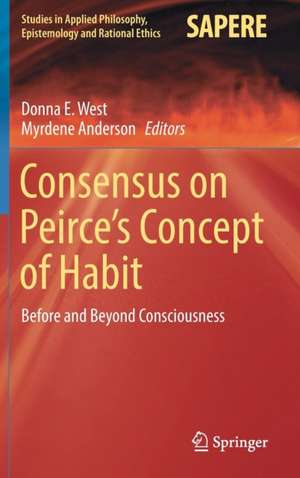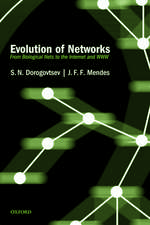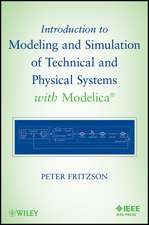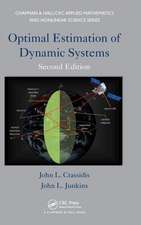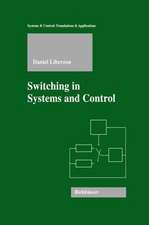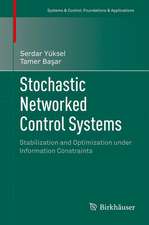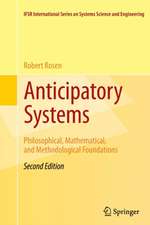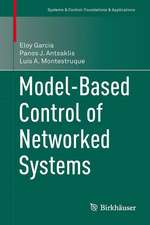Consensus on Peirce’s Concept of Habit: Before and Beyond Consciousness: Studies in Applied Philosophy, Epistemology and Rational Ethics, cartea 31
Editat de Donna E. West, Myrdene Andersonen Limba Engleză Hardback – 21 sep 2016
| Toate formatele și edițiile | Preț | Express |
|---|---|---|
| Paperback (1) | 704.87 lei 6-8 săpt. | |
| Springer International Publishing – 15 iun 2018 | 704.87 lei 6-8 săpt. | |
| Hardback (1) | 711.40 lei 6-8 săpt. | |
| Springer International Publishing – 21 sep 2016 | 711.40 lei 6-8 săpt. |
Din seria Studies in Applied Philosophy, Epistemology and Rational Ethics
- 20%
 Preț: 603.90 lei
Preț: 603.90 lei -
 Preț: 397.59 lei
Preț: 397.59 lei -
 Preț: 359.54 lei
Preț: 359.54 lei - 20%
 Preț: 989.96 lei
Preț: 989.96 lei - 24%
 Preț: 787.50 lei
Preț: 787.50 lei -
 Preț: 390.08 lei
Preț: 390.08 lei -
 Preț: 370.88 lei
Preț: 370.88 lei - 15%
 Preț: 641.20 lei
Preț: 641.20 lei - 20%
 Preț: 991.60 lei
Preț: 991.60 lei - 20%
 Preț: 646.95 lei
Preț: 646.95 lei - 15%
 Preț: 653.98 lei
Preț: 653.98 lei -
 Preț: 384.48 lei
Preț: 384.48 lei -
 Preț: 395.47 lei
Preț: 395.47 lei - 18%
 Preț: 1216.95 lei
Preț: 1216.95 lei - 18%
 Preț: 947.50 lei
Preț: 947.50 lei -
 Preț: 388.72 lei
Preț: 388.72 lei -
 Preț: 390.08 lei
Preț: 390.08 lei -
 Preț: 395.09 lei
Preț: 395.09 lei -
 Preț: 394.12 lei
Preț: 394.12 lei - 15%
 Preț: 644.82 lei
Preț: 644.82 lei - 15%
 Preț: 698.15 lei
Preț: 698.15 lei - 18%
 Preț: 1840.91 lei
Preț: 1840.91 lei - 20%
 Preț: 656.84 lei
Preț: 656.84 lei -
 Preț: 389.70 lei
Preț: 389.70 lei - 20%
 Preț: 991.46 lei
Preț: 991.46 lei - 15%
 Preț: 585.73 lei
Preț: 585.73 lei - 15%
 Preț: 589.33 lei
Preț: 589.33 lei - 15%
 Preț: 700.42 lei
Preț: 700.42 lei
Preț: 711.40 lei
Preț vechi: 836.93 lei
-15% Nou
Puncte Express: 1067
Preț estimativ în valută:
136.17€ • 147.96$ • 114.46£
136.17€ • 147.96$ • 114.46£
Carte tipărită la comandă
Livrare economică 21 aprilie-05 mai
Preluare comenzi: 021 569.72.76
Specificații
ISBN-13: 9783319459189
ISBN-10: 331945918X
Pagini: 350
Ilustrații: XXV, 434 p. 9 illus.
Dimensiuni: 155 x 235 x 25 mm
Greutate: 0.82 kg
Ediția:1st ed. 2016
Editura: Springer International Publishing
Colecția Springer
Seria Studies in Applied Philosophy, Epistemology and Rational Ethics
Locul publicării:Cham, Switzerland
ISBN-10: 331945918X
Pagini: 350
Ilustrații: XXV, 434 p. 9 illus.
Dimensiuni: 155 x 235 x 25 mm
Greutate: 0.82 kg
Ediția:1st ed. 2016
Editura: Springer International Publishing
Colecția Springer
Seria Studies in Applied Philosophy, Epistemology and Rational Ethics
Locul publicării:Cham, Switzerland
Cuprins
Part I —Background: Ecological Systems.- Part II—Habit as Action Schema.- Part III—Mental Complexions of Habit.
Recenzii
“A substantial and important book, one that illuminates not only some of the complex details of Peirce s thought, but also a wide range of issues in pragmatism, semiotics, and philosophical anthropology for which his thinking about habit is shown to be relevant.” (Michael L. Raposa, From the Pluralist, Vol. 14 (2), 2019)
“Thematic consensus that can be drawn from this important work it is that habits are not the result of mechanical-organic processes resulting from repeated actions, but rather involve agency, imagination, and semiosis. … Biologists are increasingly adopting a version of Peirce’s basic perspective of evolution … .” (Marcel Danesi, Biosemiotics, Vol. 11, 2018)
“Thematic consensus that can be drawn from this important work it is that habits are not the result of mechanical-organic processes resulting from repeated actions, but rather involve agency, imagination, and semiosis. … Biologists are increasingly adopting a version of Peirce’s basic perspective of evolution … .” (Marcel Danesi, Biosemiotics, Vol. 11, 2018)
Textul de pe ultima copertă
This book constitutes the first treatment of C. S. Peirce’s unique concept of habit. Habit animated the pragmatists of the 19th and early 20th centuries, who picked up the baton from classical scholars, principally Aristotle. Most prominent among the pragmatists thereafter is Charles Sanders Peirce. In our vernacular, habit connotes a pattern of conduct. Nonetheless, Peirce’s concept transcends application to mere regularity or to human conduct; it extends into natural and social phenomena, making cohesive inner and outer worlds. Chapters in this anthology define and amplify Peircean habit; as such, they highlight the dialectic between doubt and belief. Doubt destabilizes habit, leaving open the possibility for new beliefs in the form of habit-change; and without habit-change, the regularity would fall short of habit – conforming to automatic/mechanistic systems. This treatment of habit showcases how, through human agency, innovative regularities of behavior and thought advance theprocess of making the unconscious conscious. The latter materializes when affordances (invariant habits of physical phenomena) form the basis for modifications in action schemas and modes of reasoning. Further, the book charts how indexical signs in language and action are pivotal in establishing attentional patterns; and how these habits accommodate novel orientations within event templates. It is intended for those interested in Peirce’s metaphysic or semiotic, including both senior scholars and students of philosophy and religion, psychology, sociology and anthropology, as well as mathematics, and the natural sciences.
Caracteristici
Discusses how regularity and new regularities operate in the natural world and in mental life Analyzes the dynamics of habit-change in human ontogeny Highlights the role of consciousness and self-control to the processes of cultural change and inferential reasoning Includes supplementary material: sn.pub/extras
